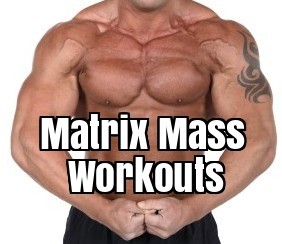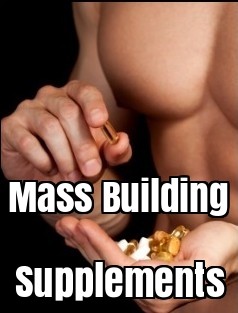

Click Here For Your Free Bodybuilding Magazine
Bodybuilding BMR
Increasing Basal Metabolic Rate for bodybuilding
A typical question asked by trainees just starting out is, "if the average person consumes 2,000 calories a day, wouldn't you practically have to live in the gym to burn all that food?".
If you relied on only the calorie burning effects of exercise to utilize the food you consumed, you would be the size of a motor-home! If the average 150-pound person were to jog a 9-minute mile for 30 minutes, they would burn 388 kcals (calories) of 776 kcals an hour. If you ate a modest 2,000 calories a day, it would take you over 2 1/2 hours just to burn the food you ate. Doesn't sound like fun, does it?
Fortunately for us, this isn't the only way we burn calories. Even as rest, your body remains extremely active. Your heart has to beat, you have to keep warm and you have to use energy replacing those worn-out body cells. As you can see, calories are burned in many more ways than simply "working out".
The method by which food is either used to build, repair or replace body structures (anabolism) or broken down into simpler substances or waste matter (catabolism), with the release of energy for vital processes is called metabolism. The greater one's metabolism, the greater one's calories requirement which means the more food you need to eat.
Basal metabolic rate (BMR) is the term used to define the amount of calories the body requires to "sustain life". Our total daily calorie intake is used up for:
- BMR (Base Metabolic Rate - primarily genetic, can be altered)
- Energy used in normal activity
- Energy used in exercise
- Energy required to digest food known as the "Thermic Effect of Food".
Increasing and or manipulating any of the above will enable you to burn more calories and stay leaner and healthier. Dieting alone will only waste muscle tissue, further slowing down your metabolism, making it harder and harder to lose those unwanted pounds. Weight training, cardio exercise and diet/supplements are the only way to stay lean, healthy and keep the weight off.
The most significant way to improve BMR is to build more muscle. Muscle tissue is extremely metabolically active and requires many more calories, even at rest, to maintain. Without changing anything else, if you add more muscle, you'll find it easier to stay lean.
You should also perform cardio exercise to increase overall metabolic rate. Even though this effect is not as powerful as building more muscle, there are many other benefits to your heart and circulatory system. Finally, you can eat a balanced protein/carbohydrate diet and take thermogenic-boosting supplements to stimulate your metabolism into a higher level of activity. Products like Herbal Fat Burner, will increase the rate your cells utilize caloric energy throughout the day.
Depending upon the level of intensity, weight training and cardio exercise together can increase your metabolic rate up to 20 times that which it is at rest. However, research has shown that an individual's metabolic rate remains significantly increased for many hours even after the exercise has ceased. So, just because the readout or your chart says 300 kcal burned, it doesn't mean that it's all the good you've done!
Yes it's true. Eating and digesting food, burns calories! The more you eat, the more calories you need to burn in order to digest it! Digesting, or assimilating, food can raise your metabolic rate 10 to 20 percent. As you know, a 20 percent increase is a significant amount. This is the main reason why you shouldn't exercise after a meal. With only 80 percent of your normal energy available, your performance will be severely affected. This is why we recommend eating four to five 'meals' per day, since this helps ensure that you 'burn calories' throughout the whole day, simply in the course of assimilating your food.
There are many other factors associated with metabolic rate. Gender (due to the higher muscle mass associated with males), age (generally, the younger you are, the higher the metabolic rate) and environment (as the temperature rises, your appetite lessens since fewer calories are required for heat generation) can all play their part.
When counting the calories you eat each day, take into consideration all the factors involved in their use. As you become more muscular, you will find the need to eat more I because you will be burning more calories to maintain your mass.
Approach any dieting goal with three main focal points in mind.
1) Exercise to specifically build more muscle.
2) Perform cardiovascular training to burn excess calories.
3) Balance your protein/carbohydrate food mix and take the appropriate fat burner supplement.
Note: For the best muscle building and fat burning workouts checkout Matrix Mass Training.
Click Here For Your Free Bodybuilding Magazine
Bodybuilding Guide | High Intensity Training | Supplements | Articles | Tips | Links | Contact
Disclaimer: This information presented is intended to be used for educational purposes only. The statements made have not been evaluated by the Food and Drug Administration (U.S.). These products are not intended to diagnose, treat, cure or prevent any condition or disease. Please consult with your own physician or health care practitioner regarding any suggestions and recommendations made.

